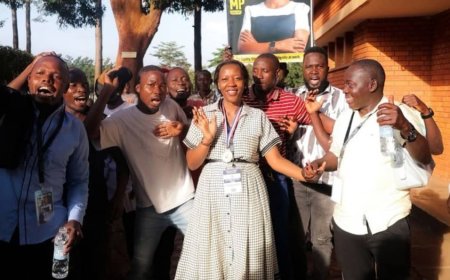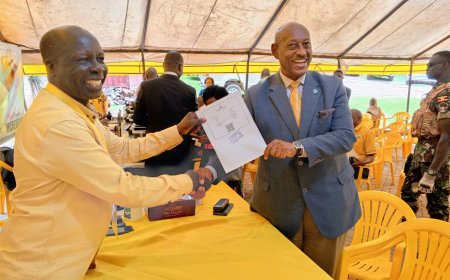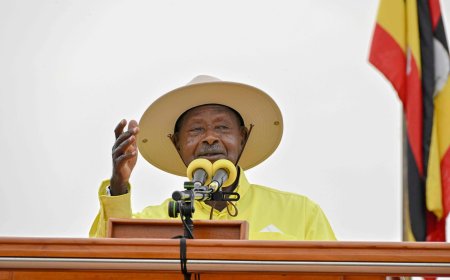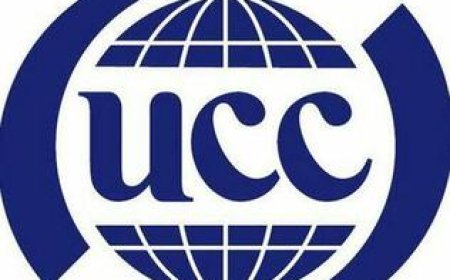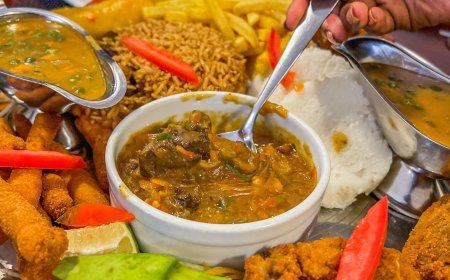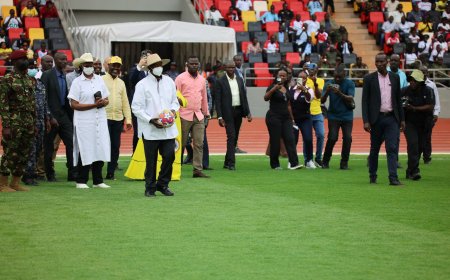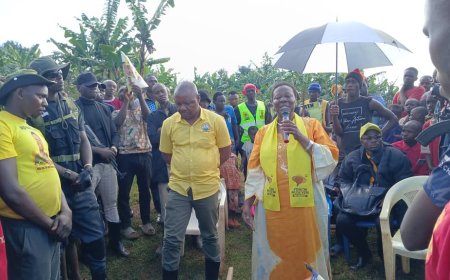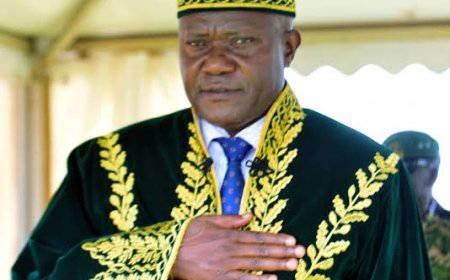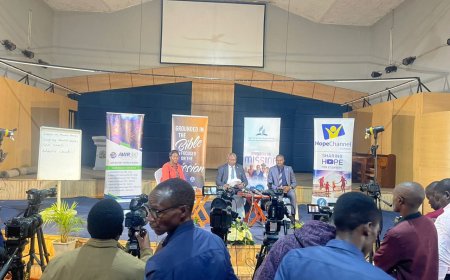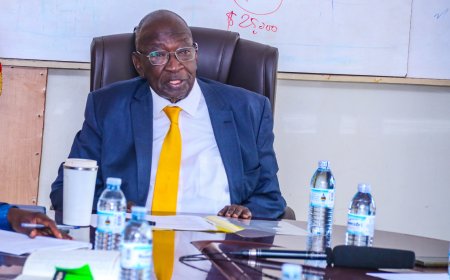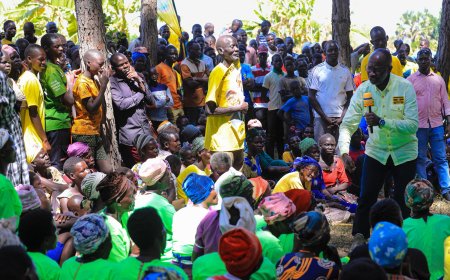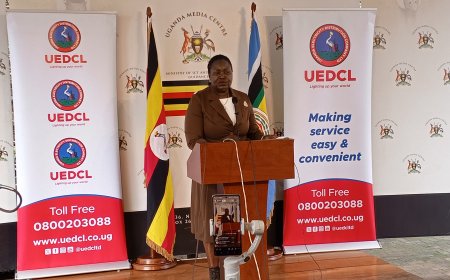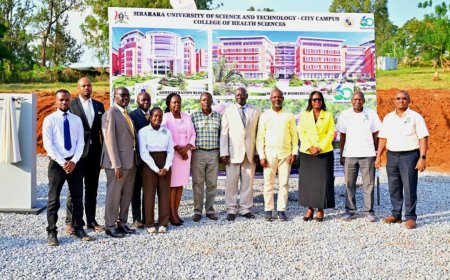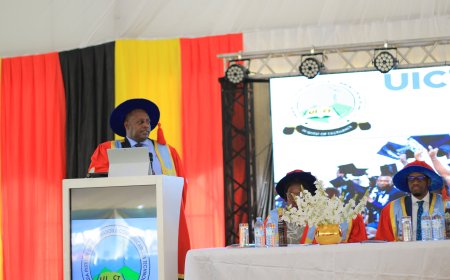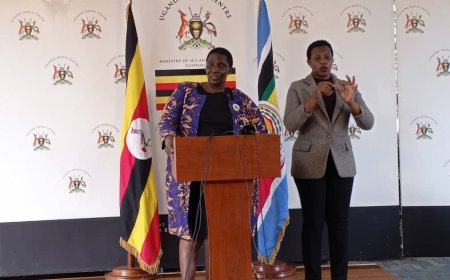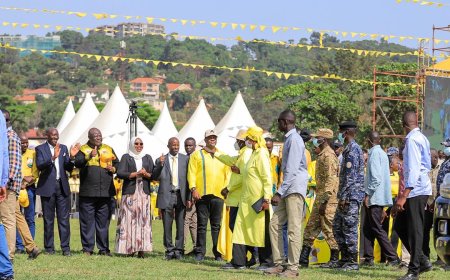Museveni Sets Agenda for Wealth, Jobs and Markets in 2025–2031 Manifesto
Tracing history from 1962, Museveni noted that at independence, only 9% of Ugandan homesteads were engaged in the money economy dominated by the "3Cs" (coffee, cotton, copper) and "3Ts" (tea, tobacco, tourism). The rest lived in subsistence production, a system he termed okukolera ekidda kyonka — “working only for the stomach.”
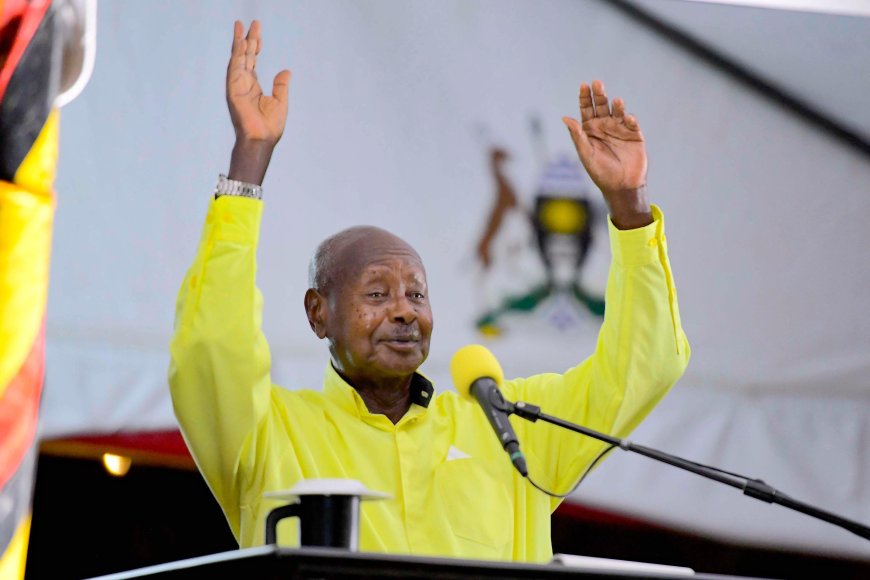
President Yoweri Kaguta Museveni, in his capacity as NRM National Chairman, has released a powerful message outlining Uganda’s economic journey since independence and setting the agenda for the next phase of transformation under the 2025–2031 Manifesto.
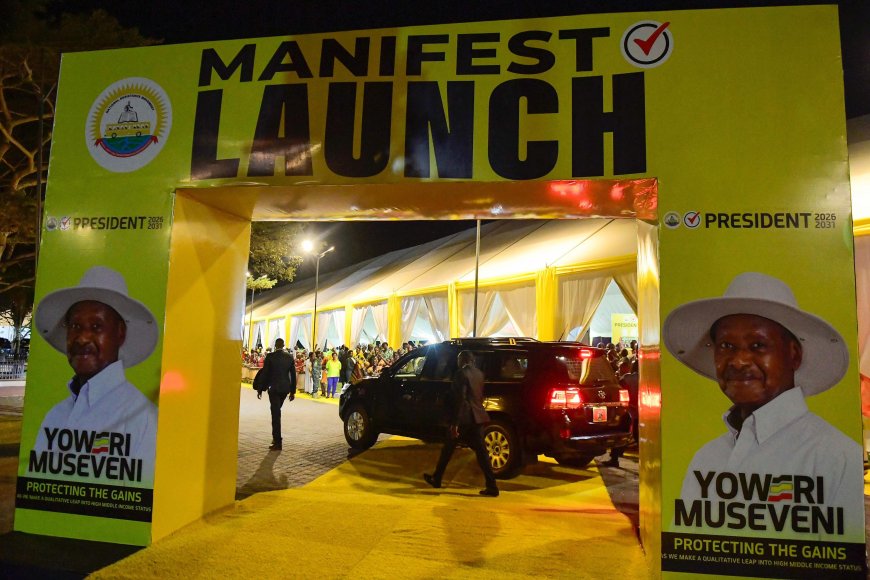
Tracing history from 1962, Museveni noted that at independence, only 9% of Ugandan homesteads were engaged in the money economy dominated by the "3Cs" (coffee, cotton, copper) and "3Ts" (tea, tobacco, tourism). The rest lived in subsistence production, a system he termed okukolera ekidda kyonka — “working only for the stomach.”
Following Idi Amin’s economic collapse of the 1970s, Museveni said the NRM has rebuilt Uganda through five phases:
Economic recovery – restoring collapsed sectors and reformalising the economy.
Expansion – scaling up coffee, tea, tourism and other traditional sectors.
Diversification – commercialising subsistence products like milk, bananas, maize, cassava, fruits.
Value addition – investing in processing of crops, livestock, timber, cotton and more.
Knowledge economy – making inroads in automobiles, ICT, vaccines and pharmaceuticals.
As a result, Uganda’s economy has grown from USD 3.9 billion in 1986 to USD 66.1 billion (forex method) by FY2025/26 and USD 188 billion (PPP method) — a 17-fold expansion despite corruption setbacks.
The Seven Pillars for Transformation
Museveni distilled Uganda’s next leap into seven guiding words:
Peace (Obusingye): The NRM has guaranteed stability for 40 years, creating conditions for growth. Uganda now hosts 1.8 million refugees — a testament to its security.
Development (Entunguuka): Investment in infrastructure — roads, railways, pipelines, electricity, ICT, schools and hospitals — must continue to cut business costs and enhance competitiveness.
Wealth (Obugaiga): Wealth creation is an individual and family responsibility, supported by infrastructure but driven by commercial agriculture, manufacturing, services and ICT. Museveni cited small farmers like Nyakaana of Rwengaaju earning over Shs.1 billion annually, showing that both small-scale and plantation farming can create prosperity.
Jobs (Emirimo): The President challenged colonial-era distortions equating “jobs” with clerical work, stressing that farming, artisanal work, ICT and services are true job creators. Already, commercial agriculture has created 3.6 million jobs, manufacturing 1.4 million, services 5 million, and ICT over 46,000.
Services (Obuweereza): With better incomes, families can partly provide their own services (health, education, power, water), while government strengthens public services — including the rollout of free education in all government schools.
Markets: Museveni called for Pan-African unity, noting that prosperity depends on wider markets. “If you really love your people, do you want them to be prosperous? If yes, then who will buy their products? Certainly not just their tribe or religion,” he said, underlining the importance of EAC and African markets.
Political Federation: For lasting strategic security, Uganda must pursue political integration in East Africa and beyond. Economic integration through AfCFTA will create prosperity, but only federation will guarantee security in a global system dominated by powers with land, sea, air and space capabilities.

The Next Leap
Museveni said Uganda must now focus on achieving upper middle-income status with a GDP of USD 500 billion, driven by wealth creation, industrialisation, ICT expansion, and Pan-African integration.
“The seven words — peace, development, wealth, jobs, services, markets, and political federation — must be at the forefront of our thinking,” he declared. “This is how we shall protect our gains and execute a qualitative leap for Uganda’s transformation.”
